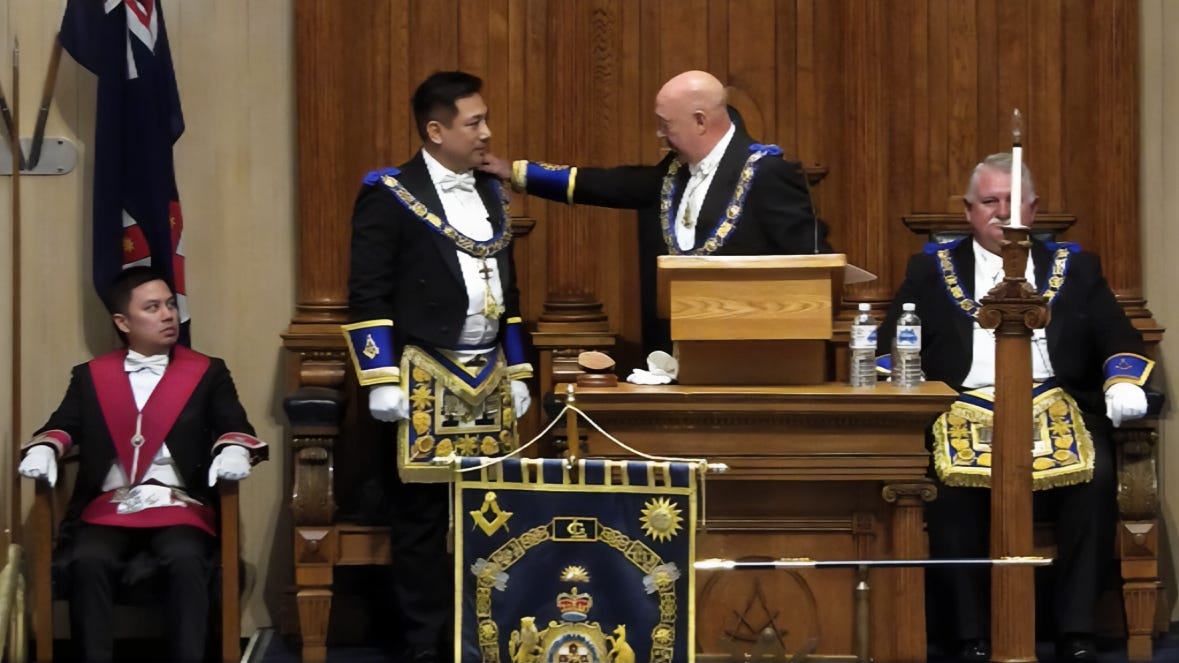The Ladder of Masonic Leadership: A Blueprint for Ascent to Grand Master
An Exploration of the First Part of "IV of Masters, Wardens, Fellows, and Apprentices" and Its Timeless Lessons on Merit-Based Progression in Freemasonry
"No Brother can be a Warden until he has passed the part of a Fellow-Craft, nor a Master until he has acted as a Warden, nor Grand Warden until he has been Master of a Lodge, nor Grand Master unless he has been a Fellow-Craft before his election,
who is also to be nobly born, or a gentleman of the best fashion, or some eminent scholar, or some curious architect, or other artist, descended of honest parents, and who is of singularly great merit in the opinion of the Lodges.
And for the better, and easier, and more honourable discharge of his office, the Grand Master has a power to choose his own Deputy Grand Master, who must then be, or have formerly been, the Master of a particular Lodge, and who has the privilege of acting whenever the Grand Master, his Principal, should act, unless the said Principal be present, or interpose his authority by letter.
These Rulers and Governors, Supreme and Subordinate, of the ancient Lodge, are to be obeyed in their respective stations by all the Brethren, according to the old charges and regulations, with all humility, reverence, love and alacrity."
This verse is the Ancient Masonic equivalent of a constitution, outlining the hierarchical structure and qualifications for leadership within the Fraternity. It's not just a set of rules; it's a guide to the ethos that should permeate every Lodge.
Ignoring these principles is like ignoring the laws of physics when building a bridge.
The structure may appear sound, but it's only a matter of time before it collapses under its own weight, bringing down the reputation and integrity of the Fraternity with it.
The verse is a tapestry of carefully chosen words, each with its own historical weight. "Warden," derived from the Old North French "wardein," means guardian or protector. "Master," from the Latin "magister," signifies a person of skill or authority. "Fellow-Craft" is a term that harks back to medieval guilds, signifying a member who has advanced beyond apprenticeship but is not yet a master.
The principle here is one of structured progression and merit-based leadership.
It's not just about climbing the ladder; it's about being qualified at each rung.
The key lesson is that leadership in Freemasonry is not just about seniority or title; it's about skill, merit, and the ability to lead and inspire.
So, how do we apply this wisdom to our daily lives?
First, understand that leadership is earned, not given. Whether in your professional life or within the craft, strive to master the skills and responsibilities of your current position before seeking to move up.
Second, the verse speaks to the importance of "humility, reverence, love and alacrity" in obeying those in positions of authority. This is a two-way street.
As leaders, we should strive to inspire these qualities in our subordinates; as followers, we should offer them willingly.
Lastly, the verse emphasises the importance of being "descended of honest parents" and of "singularly great merit." While we can't choose our lineage, we can choose to live in such a way that would make our ancestors proud and enrich the lives of those who come after us.
By adhering to these principles, we not only enrich our own lives but also contribute to the strength and integrity of the Craft. And in doing so, we ensure that the honour of leadership within Freemasonry is based on merit, skill, and the ability to inspire—never on mere title or seniority.




